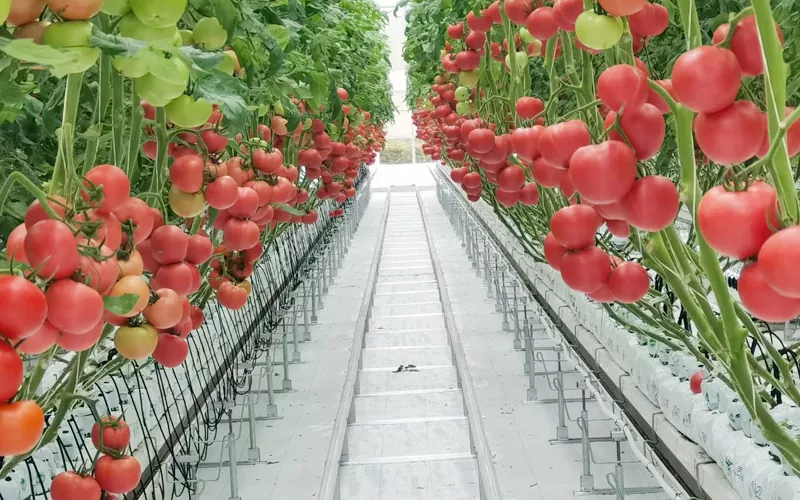The Benefits of Growing Plants in a Glass Greenhouse
2024-08-15
Glass greenhouses have long been a symbol of advanced horticulture, providing an optimal environment for plant growth. Whether you're a commercial grower or a gardening enthusiast, a glass greenhouse offers numerous benefits that can significantly enhance your gardening experience. In this blog, we'll explore the advantages of growing plants in a glass greenhouse and why it remains a popular choice for growers worldwide.

1. Superior Light Transmission
One of the most significant advantages of a glass greenhouse is its excellent light transmission. Glass allows up to 90% of natural sunlight to enter, providing plants with the full spectrum of light they need for photosynthesis. Unlike plastic or polycarbonate, which can diffuse or filter light, glass ensures that plants receive direct and unaltered sunlight, leading to healthier and more robust growth.
2. Enhanced Durability and Longevity
Glass greenhouses are known for their durability and longevity. Unlike plastic coverings that may degrade over time due to UV exposure, glass is highly resistant to weathering and can last for decades. This durability makes glass greenhouses a long-term investment, providing a stable and reliable growing environment year after year.
3. Aesthetic Appeal
Beyond functionality, glass greenhouses offer a timeless and elegant appearance that can enhance the overall look of your garden or property. The transparency of glass creates a visually appealing structure that blends seamlessly with its surroundings. Whether you're using it for growing plants or as a conservatory, a glass greenhouse adds a touch of sophistication and beauty to any space.
4. Optimal Temperature Regulation
Glass greenhouses provide excellent temperature regulation, creating a stable environment that promotes consistent plant growth. The thermal properties of glass allow it to retain heat effectively, maintaining a warm and comfortable temperature even during cooler months. This ability to regulate temperature makes glass greenhouses ideal for growing a wide variety of plants, from tropical species to temperate vegetables.
5. Resistance to Condensation and Humidity Control
Condensation can be a significant issue in greenhouses, leading to fungal growth and other plant diseases. Glass greenhouses, however, are less prone to condensation compared to plastic or polycarbonate alternatives. The smooth surface of glass allows moisture to run off easily, reducing the risk of mold and mildew. Additionally, glass greenhouses often come equipped with ventilation systems that help control humidity levels, ensuring a healthy growing environment.
6. Versatility in Design and Usage
Glass greenhouses are incredibly versatile and can be customized to suit a variety of purposes. Whether you need a small structure for personal gardening or a large commercial greenhouse, glass can be adapted to any design. Glass greenhouses can also be used for other purposes, such as a conservatory, a sunroom, or even a space for social gatherings, making them a multifunctional addition to your property.
Conclusion
A glass greenhouse is more than just a structure for growing plants; it’s an investment in the future of your gardening or agricultural endeavors. With superior light transmission, durability, aesthetic appeal, and optimal temperature regulation, glass greenhouses offer an unparalleled growing environment. Whether you're aiming for high yields in commercial farming or cultivating a diverse range of plants in your backyard, a glass greenhouse provides the ideal setting for success.


